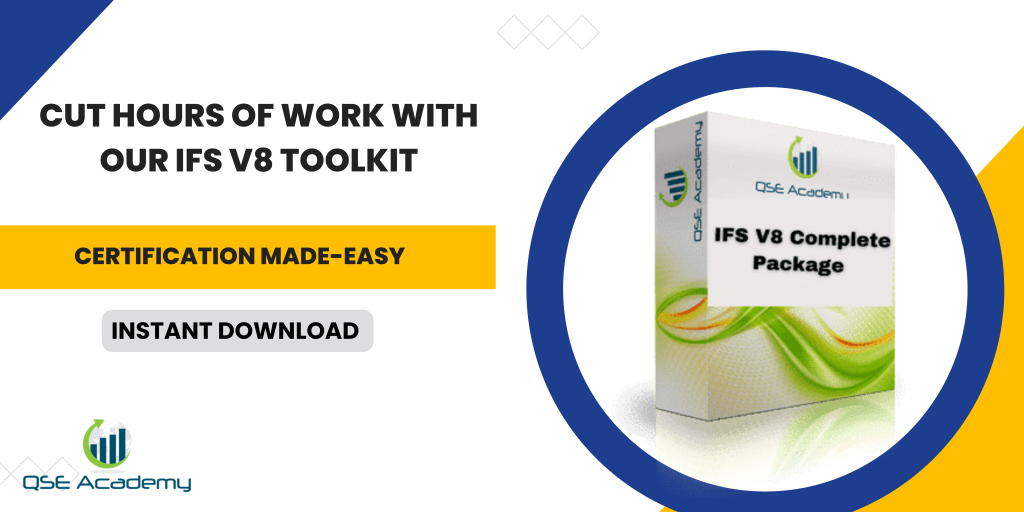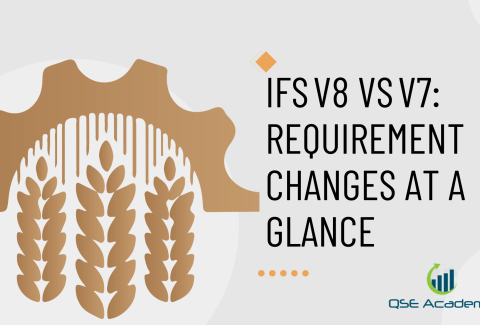Choosing an IFS V8 Certification Body
Last Updated on November 19, 2025 by Melissa Lazaro
Why Choosing the Right Certification Body Matters
If there’s one decision companies underestimate when starting their IFS journey, it’s choosing the right certification body. On paper, every certification body looks similar — same rules, same standard, same audit structure. But in practice, the experience, costs, and outcome can vary a lot.
Over the years, I’ve helped companies compare quotations, review auditor profiles, and transition from one certification body to another when the fit wasn’t right. And I can tell you — the certification body you choose influences not just the audit, but how confident, prepared, and supported your team feels throughout the process.
If you’re reading this, you’re probably trying to avoid delays, unclear pricing, or mismatched auditor expertise. By the end, you’ll know exactly what to look for, what questions to ask, and how to make a decision that supports your certification—not complicates it.
Accreditation & Scope — Confirm They’re Approved for Your IFS V8 Category
Not all certification bodies accredited for IFS are accredited for every scope. That’s where many companies stumble. You need a certification body approved for your exact product category and risk classification, whether you’re producing meat, bakery goods, beverages, dairy, ready-to-eat meals, storage services, or operating as a broker.
A quick check on the IFS Database can confirm the following:
- Accreditation status
- Product categories covered
- Locations and approval regions
- Auditor availability
Pro Tip: Ask for written confirmation that they’re accredited for your specific category — not just IFS in general.
A common mistake is assuming “IFS accredited” automatically means “approved for your scope.” Sometimes the mismatch isn’t caught until scheduling — which delays everything.
 Auditor Competence & Sector Experience — The Part Most Companies Forget
Auditor Competence & Sector Experience — The Part Most Companies Forget
The certification body matters — but the assigned auditor often matters more.
You want someone who understands your industry, your processes, and the risks associated with your product category. An auditor with 10 years in dairy doesn’t automatically translate into competence for bakery, meat processing, or beverage carbonation.
When evaluating competence, look for:
- Relevant industry background
- Years of experience auditing similar sites
- Technical understanding of your risk category
- Experience with IFS V8 (not just V7)
Pro Tip: Don’t hesitate to request an auditor CV or qualification summary. Serious certification bodies won’t be offended — they expect it.
I once worked with a packaging manufacturer who switched CBs simply because the initial auditor lacked experience in polymer extrusion — and it showed.
Audit Availability & Scheduling — Don’t Wait Until the Last Minute
Certification bodies book audit slots months in advance — especially for high-risk food sectors and unannounced audits. And readiness isn’t the only scheduling factor. You need time to complete:
- Internal audits
- Management review
- Corrective actions from gaps
- Training sessions
- Document clean-up
The earlier you initiate scheduling conversations, the smoother the process becomes.
Pro Tip: Reserve a tentative audit month early — even before your system is fully ready. You can adjust later, but securing the slot is invaluable.
A common timing trap is waiting until everything feels “perfect” before contacting a CB. By then, the earliest available date may already be three to six months out.
Transparency in Pricing — Understanding the Full Cost Before You Commit
Certification pricing isn’t just “audit time × rate.” There are additional items that sometimes appear later if not clarified upfront, including:
- Travel and accommodation
- Certification or administrative fees
- Corrective action review
- Extra sampling review
- Follow-up audits
- IFS Database charges
A good quotation will clearly list man-days, logic used for calculation, and any potential additional charges.
Pro Tip: Always request an itemized quote. A lump-sum number tells you nothing about what you’re actually paying for.
Red flags to watch for:
- No breakdown of man-day calculation
- Vague add-ons like “miscellaneous fees”
- Travel billed “as incurred” with no cap
Communication Style & Audit Approach — You Need a Partner, Not a Stress Source
How a certification body communicates before the contract is signed is usually a preview of how communication will look during findings and corrective-action deadlines.
Strong certification bodies are:
- Responsive
- Clear
- Professional
- Objective
- Respectful of operational constraints
The audit process should feel structured — not adversarial.
Pro Tip: Pay attention to how they respond to basic questions. If they’re vague now, it won’t get better later.
I’ve seen companies switch certification bodies not because of audit findings — but because communication felt inconsistent and stressful.
Multi-Site, Combined Certification & Future Growth — Think Beyond Year One
It’s easy to choose a certification body based solely on current needs. But it helps to look ahead.
Ask yourself:
- Will we expand product lines or risk categories?
- Will we add logistics or broker operations?
- Will we eventually pursue ISO 22000, FSSC, or BRCGS?
- Could a combined or integrated audit reduce cost and time?
Some certification bodies are better equipped to support companies as they scale.
Pro Tip: Choose a certification body that can grow with you — not one you’ll outgrow in a year.
FAQs — Before You Request a Proposal
Can we change certification bodies later?
Yes. It’s possible, but requires planning and sometimes timing adjustments.
Should we choose the cheapest option?
Cost matters, but competence and communication matter more. A cheap audit can become expensive if repeat audits or poor guidance follow.
Do all certification bodies audit the same way?
The standard is the same — the style comes down to the auditor’s competence and communication.
Conclusion — Your Decision Should Be Informed, Confident, and Strategic
Now you have a clearer framework to evaluate certification bodies — not just by cost, but by competence, accreditation scope, availability, communication, and future alignment. Choosing the right partner won’t just support your certification; it can make the entire process smoother and more predictable.
If you’d like support shortlisting certification bodies based on your scope and region — or want a ready-to-use comparison checklist — I can help.
Melissa Lavaro is a seasoned ISO consultant and an enthusiastic advocate for quality management standards. With a rich experience in conducting audits and providing consultancy services, Melissa specializes in helping organizations implement and adapt to ISO standards. Her passion for quality management is evident in her hands-on approach and deep understanding of the regulatory frameworks. Melissa’s expertise and energetic commitment make her a sought-after consultant, dedicated to elevating organizational compliance and performance through practical, insightful guidance.








